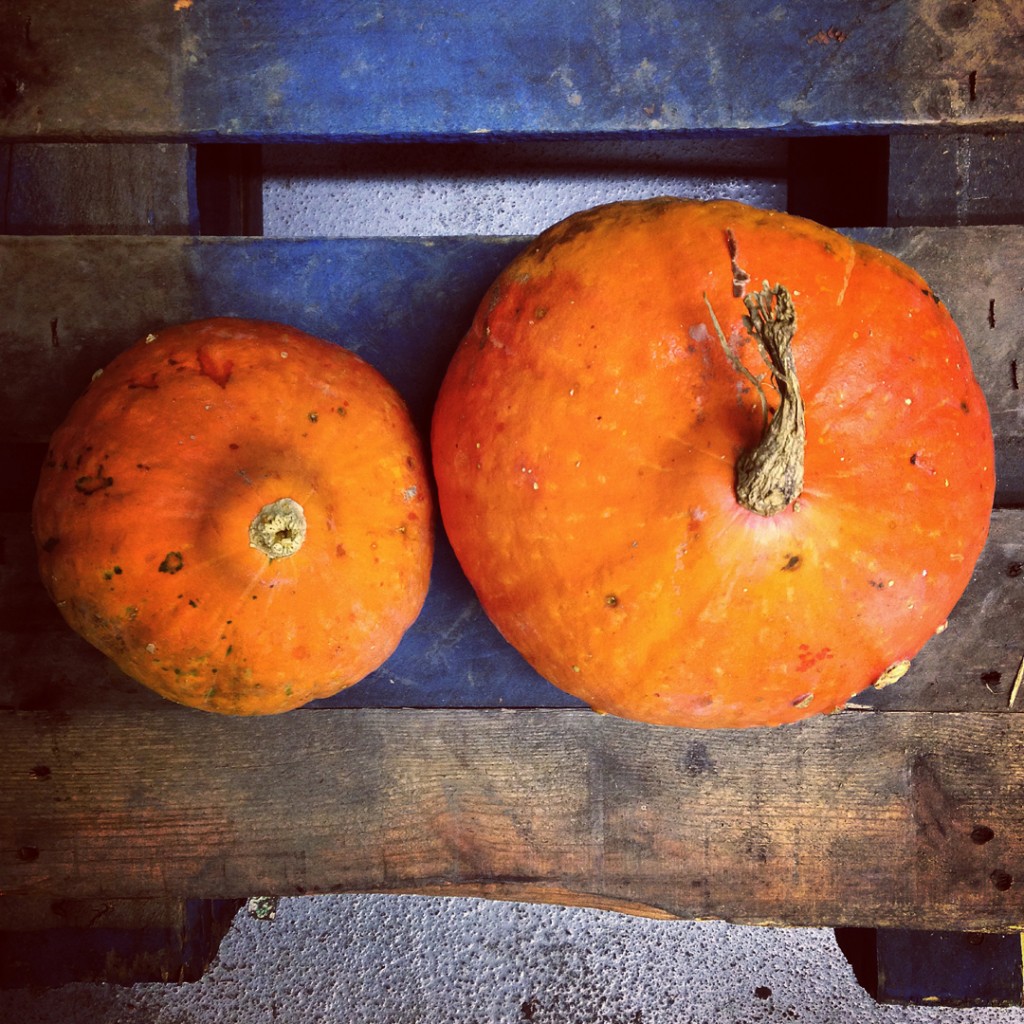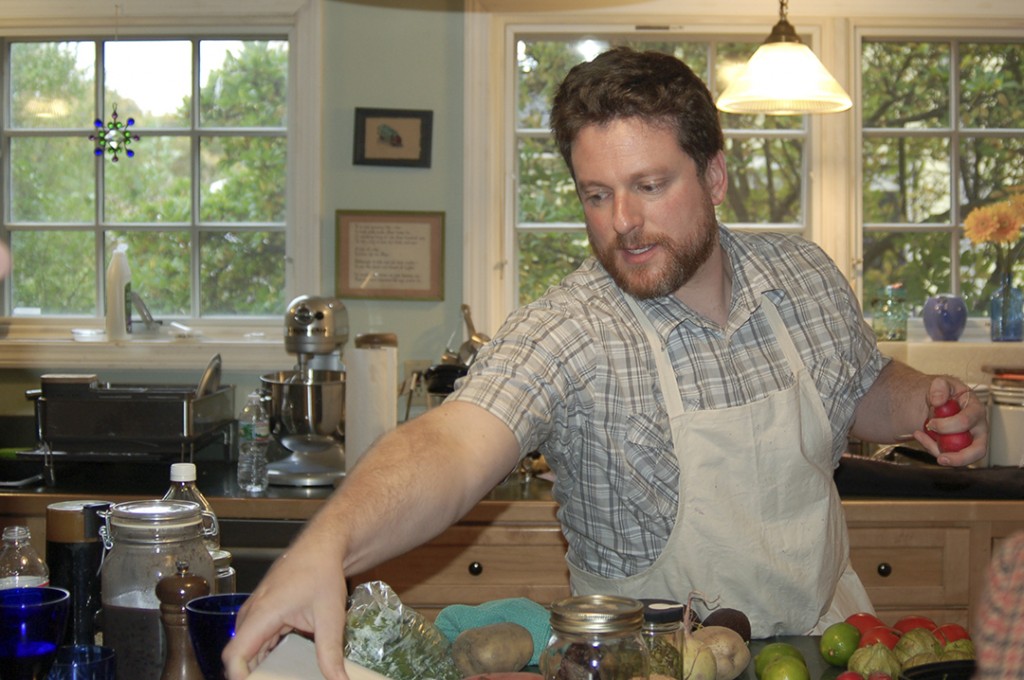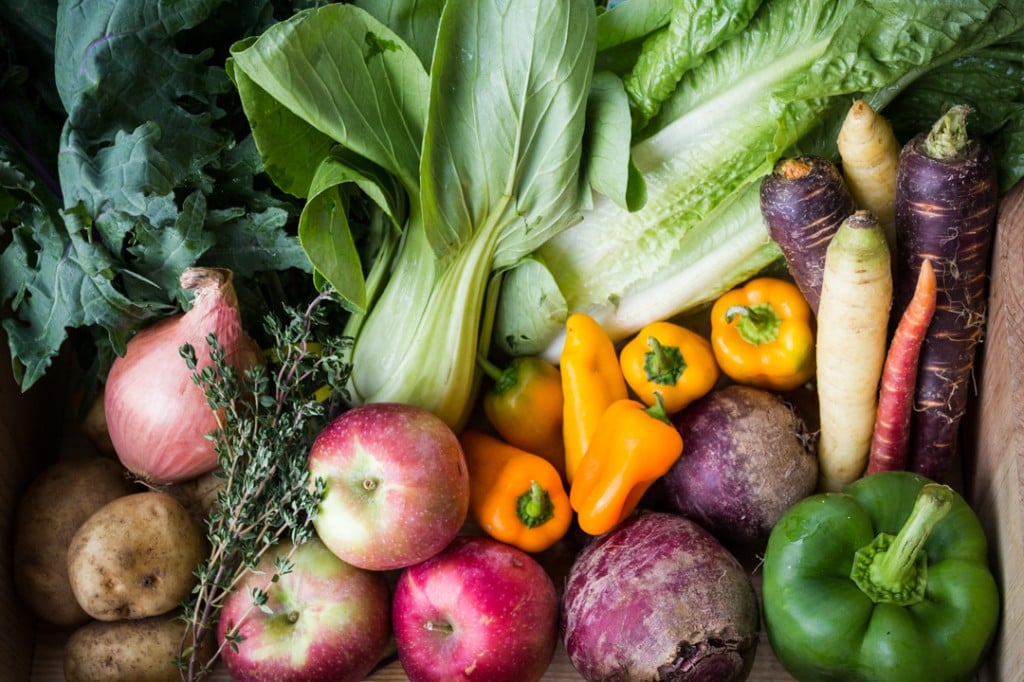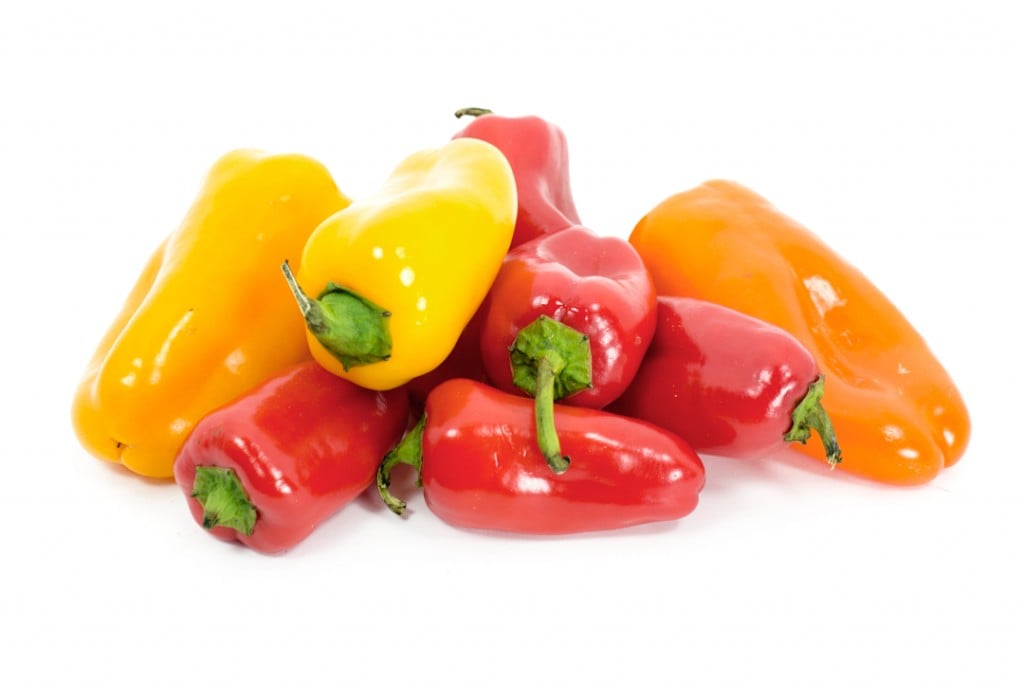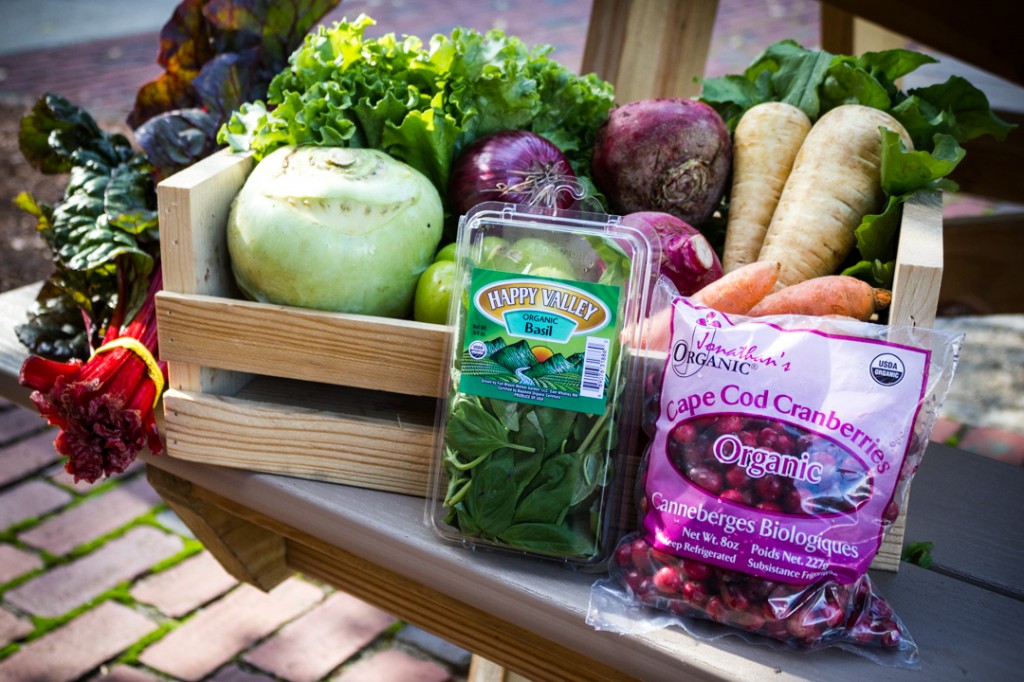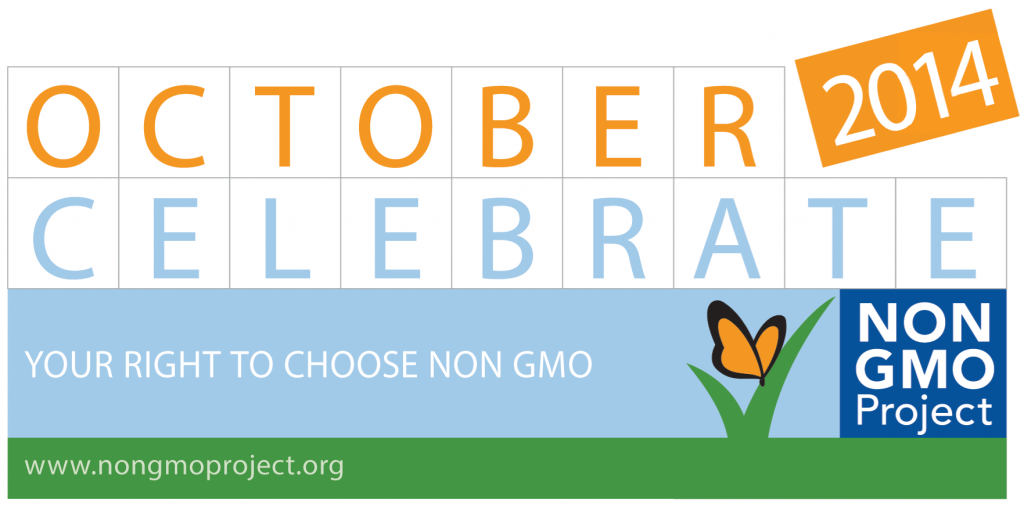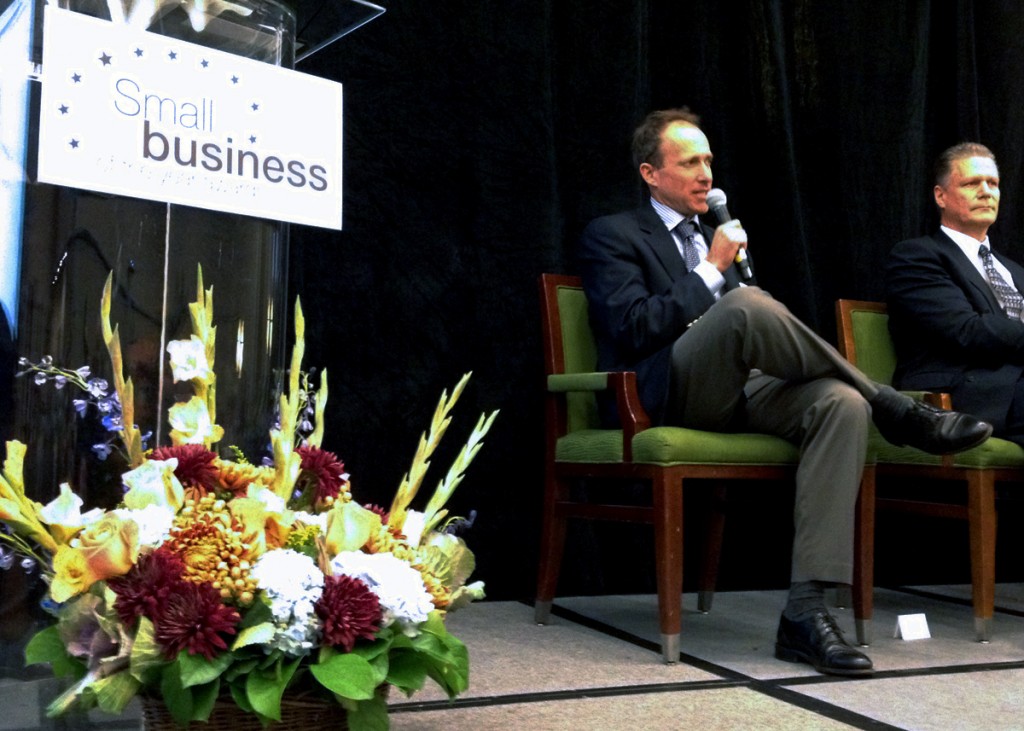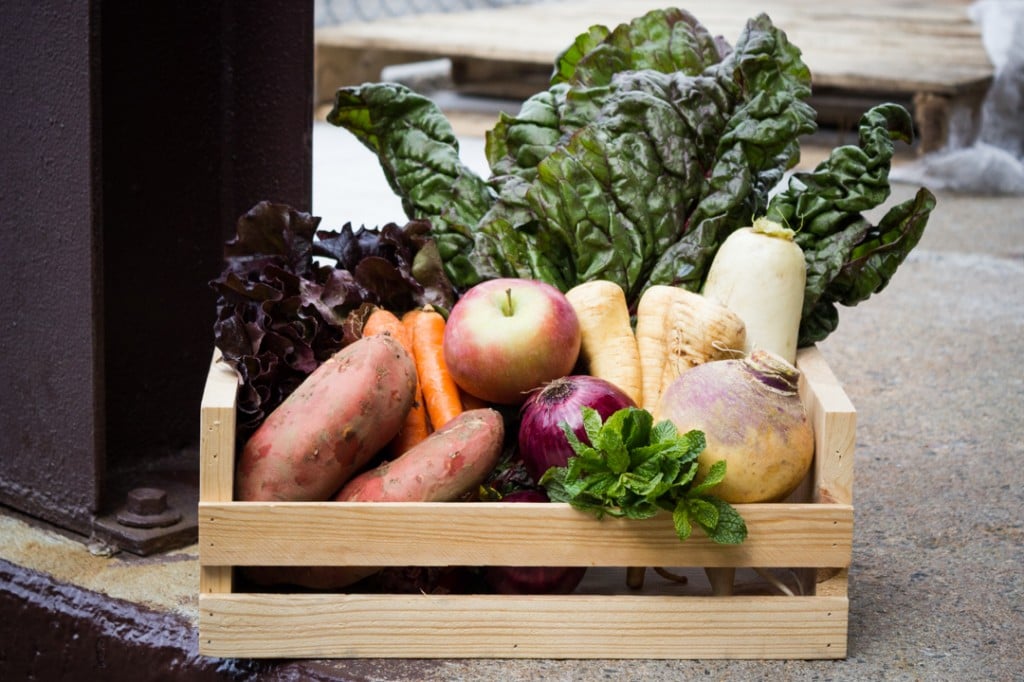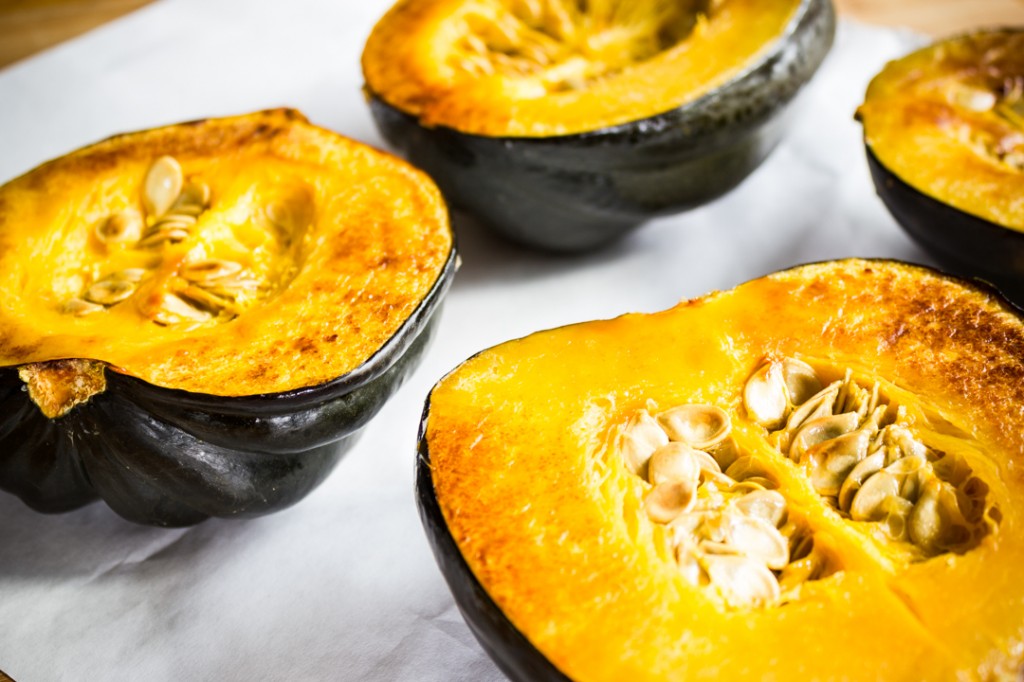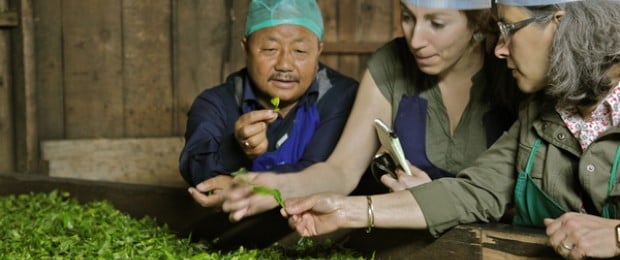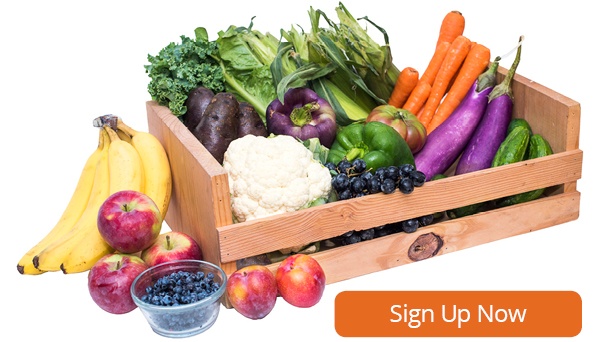This week, we're continuing to celebrate Fair Trade Month and Non-GMO Month and looking forward to Halloween!
Topic: Original Boston Organics Blog
Recent Posts
Squash, Ginger & News from the Farms Weekly Newsletter (October 27, 2014)
Topics: Fall Produce, Newsletter, Organic Grocery Delivery Boston, Organic Squash, Original Boston Organics Blog
Over the summer, we held a friendly competition for members of the Boston Organics Community with 8 fabulous prizes from some of our favorite local companies. Last weekend, one of our lucky winners redeemed her prize: a personal cooking experience with Chef Ryan Redmond.
Topics: Boston Organics Community, Organic Radishes, Contests, Community Events, boston organics, Organic Grocery Delivery Boston, Original Boston Organics Blog
Our Local Dogma Box includes organic fruits and vegetables sourced as close to Boston as possible throughout the year. Similar to a CSA or farm share, this box is filled with the best organic produce from local and regional farms and brought right to your door each week.
Topics: produce delivery, Recipes, Fall Produce, CSA, Happy Valley Organics, Local Dogma Box, deep root organic coop, boston organics, Atlas Farm, Organic Herbs, Organic Grocery Delivery Boston, New England Local Fruits and Vegetables, miscellaneous, Original Boston Organics Blog
Farmers Face First Frost:Weekly Newsletter (October 20, 2014)
Last night, our organic farm partners in western Massachusetts experienced their first frost of the season!
Topics: produce delivery, Recipes, Fall Produce, CSA, Happy Valley Organics, Fair Trade and Organic, Winter Produce, Newsletter, boston organics, Atlas Farm, Organic Herbs, organic produce, Organic Grocery Delivery Boston, Organic Squash, New England Local Fruits and Vegetables, Original Boston Organics Blog
Our Local Dogma Box includes organic fruits and vegetables sourced as close to Boston as possible throughout the year. Similar to a CSA or farm share, this box is filled with the best organic produce from local and regional farms and brought right to your door each week.
Topics: produce delivery, Recipes, Fall Produce, CSA, Happy Valley Organics, Organic Kohlrabi, Jonathan's Organic, Local Dogma Box, Organic Cranberries, Jonathan's Sprouts, boston organics, Atlas Farm, organic produce, Organic Grocery Delivery Boston, New England Local Fruits and Vegetables, Original Boston Organics Blog
October is both Non-GMO Month and Fair Trade Month — a reminder for us to pause our busy lives for one moment and to reflect on the current state of our food system. With the school year in full swing and the holiday season quickly approaching, this is a good opportunity to think critically and learn more about the food we eat and where it comes from!
You have a right to know what’s in your food. That’s the fundamental concept behind Non-GMO Month, which Boston Organics is celebrating throughout October.
As a Boston Organics customer, you’re already several steps ahead of most grocery shoppers because everything you get from us is USDA certified organic and therefore made without genetically modified organisms.
But with GMOs present in almost 80% of conventional processed food, shoppers across North America are coordinating their actions this month and calling for better management and regulation of genetically modified organisms.
What ARE GMOs?!
There is a lot of misinformation out there about GMOs, so let’s take a moment to make sure we’re all on the same page.
Genetically modified organisms (commonly abbreviated as GMOs) are plants or animals created through the process of genetic engineering. This experimental technology involves copying DNA from one species and inserting genetic material into a new organism, commonly using a bacterium or virus.
Though a fair amount of money and time has gone into researching GMOs with potential environmental or consumer benefits, the only GMOs in widespread commercial production are those that benefit commodity growers and large agribusinesses.
More than 75% of commercially grown GMO crops are engineered for herbicide resistance — specifically the herbicide glyphosate, which is patented by Monsanto and sold under the brand name Roundup. Almost all the rest have been modified to create a toxin known as Bt, which is used as a "natural" insecticide.
A Risky Technology
A combination of lenient regulation and strict patent protection has led to the rapid expansion of GMOs in our food supply without adequate prior testing.
Relatively little research has been done on the long term effects of GMO production and consumption. Almost all of the research that has been done was conducted behind closed doors and was paid for by the corporations that stand to profit from the growth of the GMO industry and its associated chemical pesticides.
On a personal level, the long term effect on reproductive health remains unknown and there’s a chance that untested GMOs could lead to unexpected allergic reactions.
Environmentally, the irresponsible use of GMOs has already led to the creation of herbicide resistant “superweeds” and pesticide resistant “superbugs.” Meanwhile, genetically modified seeds encourage farmers to plant large acreage of monoculture, resulting in the systematic destruction of biodiversity, which ultimately makes our food supply even more vulnerable.
But perhaps the biggest risk that we take by remaining ignorant of this technology is its impact on our society.
Farmers are lured into restrictive contracts that fundamentally change the way they manage their land. Even farmers who deliberately refuse to buy genetically modified seeds must take extra precautions to avoid contamination from neighboring fields.
And the average American consumer, unable to see or taste these GMOs, is ignorantly ingesting GMOs by the forkful. At this time, over 60 countries require labels on food that contains GMOs, but the United States is not one of them. We should have the right to know what’s in our food.
What Now?
Learn
You now know the basics about GMOs, but it’s a complicated technology and our food system is endlessly complex. There is always more to learn.
The Non-GMO Project is a fantastic resource to get the facts on GMOs. As the only independent certifier of non-GMO food in North America, they help consumers make informed choices every day. Their GMO Fact Sheet is an excellent place to start learning more.
The Center for Food Safety is a well respected resource for quality information on food-related topics including GMOs. They recently debunked popular myths about GMOs that are commonly portrayed in the media.
The Cornucopia Institute pursues in depth analyses of various aspects of the food industry, but their findings are easily accessible through short articles and infographics.
Act
The FDA refuses to get involved in regulating GMOs and the US Congress is dragging its feet on a national GMO labeling bill.
Fortunately, individual states have begun working on their own legislation to reign in the widespread use of GMOs. This year alone, 35 new GMO labeling bills have been introduced in 20 states. Voters in Colorado and Oregon will have a vote on a GMO labeling measure this November.
See what's happening with GMO legislation in Massachusetts and get involved.
Eat
Supporting companies that have rejected GMOs by choosing non-GMO products is one of the best ways to show your support for a natural, GMO-free world.
Checking for the USDA Organic label is our favorite way to ensure that the food we eat is non-GMO and pesticide free. But when organic is not available, you can also look for the Non-GMO Verified seal.
Both labels are backed by third-party certification systems and they’re both great tools to help you and your family make informed choices. Everything that you can buy from Boston Organics is certified organic, and some of our products also have the Non-GMO Verified seal.
You can learn more about the differences and similarities between the two labels in our previous blog post.
Let us know what YOU are doing to celebrate Non-GMO month! Post on Facebook, Twitter or Instagram and tag @BostonOrganics.
Topics: Fair Trade and Organic, Community Events, boston organics, organic produce, Organic Grocery Delivery Boston, Non GMO, miscellaneous, Original Boston Organics Blog
Business Gets Busy: Weekly Newsletter (October 13, 2014)
It's been a busy week here at Boston Organics. In addition to the normal hustle and bustle surrounding the seasonal produce from our network of organic farms, we've also been busy with a number of exciting events!
Topics: produce delivery, Recipes, Newsletter, Community Events, boston organics, Atlas Farm, organic produce, Organic Grocery Delivery Boston, New England Local Fruits and Vegetables, Original Boston Organics Blog
Our Local Dogma Box includes organic fruits and vegetables sourced as close to Boston as possible throughout the year. Similar to a CSA or farm share, this box is filled with the best organic produce from local and regional farms and brought right to your door each week.
Topics: produce delivery, Recipes, Fall Produce, CSA, Happy Valley Organics, Local Dogma Box, deep root organic coop, boston organics, Atlas Farm, Organic Herbs, Organic Chard, organic produce, Organic Grocery Delivery Boston, Organic Root Vegetables, New England Local Fruits and Vegetables, Original Boston Organics Blog
Know What You Eat: Weekly Newsletter (October 6, 2014)
As the last of the summer harvest trickles in, our farmers are preparing for the first big frost. Row covers and hoop houses will help our New England farmers extend the local growing season into late autumn, and we'll continue to source our organic fruits and vegetables from local farms for as long as possible.
Topics: produce delivery, Recipes, Fall Produce, Local Dogma Box, Fair Trade and Organic, Newsletter, Community Events, boston organics, organic produce, Organic Grocery Delivery Boston, Non GMO, New England Local Fruits and Vegetables, Original Boston Organics Blog
October is both Fair Trade Month and Non-GMO Month – a reminder for us to pause our busy lives for one moment and to reflect on the current state of our food system. With the school year in full swing and the holiday season quickly approaching, this is a good opportunity to think critically and learn more about the food we eat and where it comes from!
Topics: Fair Trade and Organic, Food Politics, Community Events, Equal Exchange, miscellaneous, Original Boston Organics Blog
Subscribe to Email Updates
Recent Posts
Posts by Topic
- Newsletter (483)
- Organic Grocery Delivery Boston (347)
- Recipes (323)
- Local Dogma Box (301)
- New England Local Fruits and Vegetables (211)
- Organic Farmers (206)
- Eat Local (190)
- boston organics (179)
- Original Boston Organics Blog (168)
- produce delivery (158)
- organic produce (141)
- Organic Grocery Add-Ons (140)
- Fresh From the Farm (115)
- Holiday (99)
- Home Cooking Kitchen Tips (92)
- Atlas Farm (91)
- CSA (81)
- Happy Valley Organics (65)
- Community Events (61)
- Healthy Office (56)
- deep root organic coop (56)
- summer produce (56)
- Organic Herbs (55)
- Beneath The Peel / Digging Deeper (54)
- Boston Organics Community (52)
- Organic Root Vegetables (47)
- organic tomatoes (47)
- Organic Leafy Greens (46)
- miscellaneous (41)
- Organic Squash (38)
- Winter moon farm (38)
- Fall Produce (37)
- Vegetarian and Vegan Food (36)
- organic carrots (35)
- Guides and Infographics (34)
- Organic Radishes (34)
- Winter Produce (34)
- Organic Sprouts (33)
- organic citrus (33)
- spring produce (33)
- organic beets (31)
- Organic Potatoes (29)
- Company Updates (28)
- Organic Cucumbers (28)
- organic basil (28)
- Organic Mushrooms (27)
- Organic Parsnips (27)
- marketing (27)
- Organic Apples (26)
- Organic Stone Fruit (26)
- Contests (25)
- Organic Cabbage (24)
- Organic Turnips (24)
- bio (24)
- office (24)
- Boston Local Partnerships (23)
- Local Season (22)
- Non GMO (20)
- Organic Greens (20)
- organic blueberries (20)
- organic kale (20)
- Food Politics (19)
- holidays (19)
- member spotlight (19)
- organic sunchokes (19)
- Locavore (18)
- Organic Onions (18)
- The Boston Organics Crew (18)
- Organic Fruit Delivery (17)
- Organic Kohlrabi (17)
- Jeff's Corner (16)
- Organic Bell Peppers (16)
- The Kitchen Garden (14)
- Organic Cranberries (13)
- Organic Eggplants (13)
- Thanksgiving (13)
- organic garlic scapes (13)
- Environmental Businesses (12)
- Organic Celeriac (12)
- Organic Mangoes (12)
- Organic Strawberries (12)
- organic sweet potatoes (12)
- sustainability (12)
- vegan (12)
- vegetarian (12)
- Fair Trade and Organic (11)
- Food System (11)
- Organic Broccoli (11)
- Organic Chard (11)
- Organic Collard Greens (11)
- Organic Compost (11)
- Organic Meal Kits (11)
- how to (11)
- organic corn (11)
- organic fruit (11)
- website (11)
- Community (10)
- Community Impact (10)
- Donations (10)
- Grower & Producer (10)
- Meal Planning (10)
- New England Winter Cooking (10)
- Organic Pears (10)
- Organic Yogurt (10)
- Queen's Greens (10)
- Red Fire Farm (10)
- winter squash (10)
- Farms (9)
- Jonathan's Sprouts (9)
- Organic Bananas (9)
- Organic Bok Choy (9)
- Organic Garlic (9)
- Organic Green Beans (9)
- Taza Chocolate (9)
- organic avocados (9)
- winter (9)
- Boston (8)
- Cargo Bike Delivery (8)
- What's In The Dogma Box (8)
- organic kiwis (8)
- winter root vegetable (8)
- winter vegetables (8)
- Equal Exchange (7)
- Organic Fennel (7)
- Organic Non GMO Corn (7)
- Year In Review (7)
- healthy eating (7)
- instructions (7)
- know your farm (7)
- organic recipes (7)
- round the world (7)
- winter greens (7)
- 21 Day Racial Inequity Challenge (6)
- About Organic (6)
- Extreme Weather (6)
- Food Solutions New England (6)
- Race (6)
- Racism (6)
- Riverland Farm (6)
- organic leeks (6)
- organic rosemary (6)
- Dwight Miller Orchard (5)
- FDA (5)
- Mousam Valley (5)
- Office wellness program (5)
- Organic Brussels Sprouts (5)
- Organic Chocolate (5)
- Organic Dandelions (5)
- Organic Juice (5)
- Organic Kiwi Berries (5)
- Organic Milk (5)
- coronavirus (5)
- covid-19 (5)
- custom box (5)
- donation (5)
- fermentation (5)
- food donation (5)
- gift cards (5)
- grocery delivery (5)
- organic persimmons (5)
- Cooking (4)
- Jonathan's Organic (4)
- Lakeside Organics of Hadley (4)
- Organic Cauliflower (4)
- Picadilly Farm (4)
- fruit delivery (4)
- know your farmer (4)
- local business (4)
- mi tierra (4)
- organic rhubarb (4)
- organic rutabagas (4)
- organic watermelon (4)
- oxen hill farm (4)
- perks (4)
- pie recipes (4)
- pumpkin (4)
- salad (4)
- snacks (4)
- Black Earth Compost (3)
- Certified B Corporation (3)
- Employee wellness (3)
- EmployeeBenefits (3)
- Into the pantry (3)
- Organic Zucchini (3)
- Purchaser's Corner (3)
- Root vegetables (3)
- Seven Hills Pasta (3)
- Storage Tips (3)
- Tagine (3)
- Winter Moon Roots (3)
- chili (3)
- dips (3)
- environmental (3)
- food relief (3)
- gardening (3)
- grilling (3)
- harvest preparation (3)
- on the farm (3)
- organic asparagus (3)
- organic celery (3)
- organic green leaf lettuce (3)
- organic peppers (3)
- organic pomegranate (3)
- pi day (3)
- pickles (3)
- productivity (3)
- resources (3)
- social distancing (3)
- superbowl (3)
- tricks (3)
- vegetarian savory pies (3)
- work from home (3)
- Butterworks Yogurt (2)
- Community Partnership (2)
- Earth Day (2)
- FAQ (2)
- Food For Free (2)
- Japanese curry (2)
- Maine Wild Blueberries (2)
- NationalCabbageDay (2)
- Organic Arugula (2)
- Organic Dried Beans (2)
- Organic Scallions (2)
- Organic Tomatillos (2)
- The Ktichen Garden (2)
- Witchcat Farm (2)
- avocado (2)
- christmas (2)
- corporate wellness (2)
- cranberry relish (2)
- cucumbers (2)
- customer (2)
- delivery (2)
- delivery instructions (2)
- diy (2)
- eggs (2)
- food access (2)
- food waste (2)
- frittata (2)
- guide to basic soup (2)
- heirloom tomatoes (2)
- meditation (2)
- organic beverages (2)
- organic cocktails (2)
- organic drinks (2)
- organic fruits and veggies (2)
- organic hechiya persimmon (2)
- organic mandarins (2)
- organic parsley (2)
- organic salsa (2)
- organic shiitake mushrooms (2)
- organic smoothie (2)
- organic vegetables (2)
- overnight oats (2)
- pesto (2)
- pumpkin pie (2)
- recycling program (2)
- remote (2)
- salad for dinner (2)
- snow day (2)
- soup guide (2)
- truly amazing soup (2)
- volunteer (2)
- waste (2)
- 2019 trends (1)
- Accountability (1)
- Albert Einstein (1)
- Bevi (1)
- Bootstrap Compost (1)
- Bravo Botanicals (1)
- Burke Hill Farm (1)
- CBD (1)
- CBD oil (1)
- CDC (1)
- CO2 extraction (1)
- Cannabidiol (1)
- Canning (1)
- Charity (1)
- Chinese New Year (1)
- Chioggia beet (1)
- Cold Brew Coffee (1)
- Cooperatives (1)
- Customer review (1)
- Deans Beans (1)
- Direct Trade (1)
- Energy Assessment (1)
- Extra produce (1)
- Family owned farms (1)
- Food Security (1)
- Food safety (1)
- Freezing (1)
- Ginger (1)
- Go Fund Me (1)
- Guatemalan Immigrant (1)
- HRConference (1)
- Hanukkah (1)
- Harlow Farm (1)
- Health insurance (1)
- Heiwa Tofu (1)
- Household Goods (1)
- Immigrant owned farms (1)
- Jessica Lynch (1)
- Kombucha (1)
- Labor Day (1)
- Latkes (1)
- Lillie Marshall (1)
- Lunar Festival (1)
- Lynn (1)
- Mass Save (1)
- Matt's Meals (1)
- NationalSoupMonth (1)
- Nature's Circle Farm (1)
- Organic Cantaloupe (1)
- Organic Chives (1)
- Organic Lentils (1)
- Organic Meyer Lemons (1)
- Organic Mint (1)
- Organic Papayas (1)
- Organic Pea Shoots (1)
- Organic Radicchio (1)
- Organic lovage (1)
- Organic vs Conventional (1)
- Organizing (1)
- Paid time off (1)
- Patriots (1)
- Produce boxes (1)
- Protein (1)
- Rise Brewing (1)
- Riverland (1)
- Sanitizing (1)
- Soofa (1)
- St. Patrick's Day (1)
- Tacos (1)
- Tofu (1)
- Valentine's Day (1)
- WBZ Radio (1)
- Western Mass (1)
- Wishroute (1)
- activities (1)
- avian flu (1)
- avocado toast (1)
- baba ganoush (1)
- baby bok choy (1)
- barbeque (1)
- being present (1)
- best gifts for foodies (1)
- bok choy (1)
- bored (1)
- boston startup (1)
- boxes (1)
- bulgur (1)
- cannabis plant (1)
- chicken (1)
- chips (1)
- chocolate cranberry cake (1)
- cider (1)
- coffee (1)
- couscous (1)
- cranberry salsa (1)
- cranberry sauce (1)
- cranberry shrubs (1)
- curbside pick up (1)
- discount code (1)
- drink water (1)
- eat your vegetables (1)
- election (1)
- enter to win (1)
- excess produce (1)
- farm partners (1)
- farro (1)
- feedback (1)
- fish (1)
- food is medicine (1)
- fourth of July (1)
- fresh made simple (1)
- fuyu persimmons (1)
- games (1)
- giving (1)
- golden nugget (1)
- grain (1)
- grain bowl (1)
- greek-style (1)
- greenhouse (1)
- guacamole (1)
- health (1)
- healthy fruits (1)
- hemp (1)
- herb garden (1)
- herbs (1)
- homemade salsa (1)
- how to update your account (1)
- hummus (1)
- indoors (1)
- jennifer hanway (1)
- logistics (1)
- main course salads (1)
- meat (1)
- meditate (1)
- mindfulness (1)
- miso (1)
- mocktails (1)
- muhammara (1)
- napa cabbage (1)
- no-cook (1)
- nonprofits (1)
- nutrition (1)
- nuts (1)
- oatmeal (1)
- organic (1)
- organic desserts (1)
- organic farming (1)
- organic peaches (1)
- organic produce recipes (1)
- organic soups (1)
- organic spinach (1)
- organic stuffing (1)
- packaging (1)
- passover (1)
- patriots day (1)
- perksbos (1)
- perksbos19 (1)
- perkscon (1)
- pioneer valley (1)
- pizza (1)
- plastic (1)
- pot pie (1)
- preserve (1)
- produce preferences (1)
- puzzles (1)
- quinoa (1)
- raw (1)
- red cabbage soup (1)
- red leaf lettuce (1)
- reduce plastic (1)
- refer a friend (1)
- reusable (1)
- ricotta (1)
- roasted red peppers (1)
- roasted vegetables (1)
- root vegetable (1)
- safety (1)
- sauces (1)
- savoy cabbage (1)
- scallions (1)
- seasonal (1)
- seeds (1)
- self quarantine (1)
- shortage (1)
- shrubs (1)
- skip delivery (1)
- solar powered (1)
- sparkling water (1)
- spinach (1)
- stir fry (1)
- stone ground (1)
- stretch (1)
- summer squash (1)
- survey (1)
- take out (1)
- tea (1)
- totes (1)
- tzatziki (1)
- vegetable garden (1)
- vegetarian soup (1)
- vegetarian soups (1)
- vegetarian stuffing (1)
- vermont (1)
- virtual (1)
- wash your produce (1)
- ways to save (1)
- wellness (1)
- year in review 2017 (1)
- yoga (1)


